|
|
|
Sort Order |
|
|
|
Items / Page
|
|
|
|
|
|
|
| Srl | Item |
| 1 |
ID:
113896
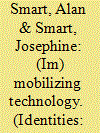

|
|
|
|
|
| Publication |
2011.
|
| Summary/Abstract |
Immobilization is generally thought to result from power and poverty acting against the acceleration produced by science and technology. In this article we explore neglected countervailing trends, such as quarantines, health inspections, and import bans, where science has the effect of restricting mobility, which we refer to as "slow science." As well as increasing mobility, science can be mobilized for political projects of restricting movement, but this possibility is neglected because of cultural assumptions fundamental to modernity. Both science and technology can be enrolled for projects of slowing mobility as well as increasing mobility. Drawing on actor-network theory, we examine the enrolment of science and technology into restricting movement in various ways. These issues are explored first through an overview of the neglected genealogy of the ways in which science and technology have slowed movement, particularly across national borders, and second through a short case study of how food safety concerns affect the movement of beef across borders. The case study discusses how "slow science" diagnoses threats posed by mobility and develops technologies to immobilize certain entities. These entities have almost always been biological organisms (including humans) or their products due to the self-reproducing qualities of invasive species, bacteria, or viruses. Uniquely, WTO rules about food require that restrictions be based on sound science, resulting in trade disputes focused on scientific interpretations.
|
|
|
|
|
|
|
|
|
|
|
|
|
|
|
|
| 2 |
ID:
113079
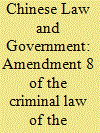

|
|
|
| 3 |
ID:
154654
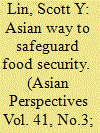

|
|
|
|
|
| Summary/Abstract |
During the twenty-first century's wave of transnational farmland investment, Asian countries contributed to about half of the investment. I therefore address the following major questions: What is the food security situation across Asian countries? What are the factors that drive Asian countries to join the transnational farmland investment movement? I argue that the following four factors give rise to the security problems in the food supply chain of Asian countries: (1) the developmental state model that leads Asian countries to sacrifice agriculture in their home countries; (2) the increases in food demand resulting from accelerated urbanization; (3) an unstable food supply chain causing Asian countries to seek reliable bases of food supply; and (4) food safety concerns that drive Asia to look for better quality farmlands. Today, as transnational farmland investment has become one of the models to maintain Asian countries' food security, this Asian model is also challenging contemporary global food security governance dominated by Western countries. The changes that it will effect over the course of this arduous process will also inform and shape future research within academia.
|
|
|
|
|
|
|
|
|
|
|
|
|
|
|
|
| 4 |
ID:
185271
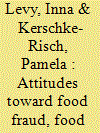

|
|
|
|
|
| Summary/Abstract |
This article examined a model that focused on the association between attitudes towards food fraud (AFF) and such factors as food safety concerns, self-labelling as a victim and national culture. The online survey included 106 German and 363 Israeli respondents and questionnaires on attitudes towards food fraud, food safety concerns, self-labelling as a victim of food fraud, and sociodemographic characteristics. The results indicate that national culture and self-labelling as a victim predict food safety perception, which predicts AFF. The discussion addressed the findings in the context of collective victimisation, exposure to food fraud, and national culture.
|
|
|
|
|
|
|
|
|
|
|
|
|
|
|
|
| 5 |
ID:
143393
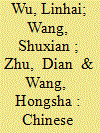

|
|
|
|
|
| Summary/Abstract |
A survey was conducted among 1489 consumers in seven pilot cities designated by the Chinese Ministry of Commerce for constructing a meat circulation traceability system.This study set four attributes for pork: traceability information, quality certification, appearance, and price. The preferences and willingness to pay (WTP) of consumers for traceability information, quality certification, appearance attributes, and influencing factors were investigated using choice experiments. According to results from both mixed logit and latent class models, quality certification was the most important characteristic, followed by appearance, and traceability information. “Government certification,” “very fresh-looking,” and “traceability information covering farming, slaughter and processing, circulation and marketing” were the most preferred levels of quality certification, appearance, and traceability information, respectively. Significant heterogeneity was observed in the consumer preferences for these attributes. The preferences and WTP of consumers for traceability information and quality certification were significantly influenced by age, monthly family income, and education level.
|
|
|
|
|
|
|
|
|
|
|
|
|
|
|
|
| 6 |
ID:
086714
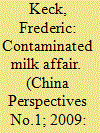

|
|
|
|
|
| Publication |
2009.
|
| Summary/Abstract |
The scandal following the revelation of the use in melamine, which causes acute kidney problems, in the production of milk powder created one of the greatest heath crises in contemporaty China. Since the SARS epidemic in 2003, the chinese government has been particularly keen to deal with such questions in the field of public health.
|
|
|
|
|
|
|
|
|
|
|
|
|
|
|
|
| 7 |
ID:
121207
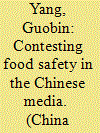

|
|
|
|
|
| Publication |
2013.
|
| Summary/Abstract |
Food safety is a matter of intense contestation in the Chinese media. Through three case studies, this article shows that government and corporate elites strive to maintain media hegemony while citizen-consumers and activists engage in counter-hegemonic practices. Under conditions of hegemony, citizen dissent is most likely to take one of two forms: diffused contention or radical protest. Like the yin and yang of civic dissent, these two forms are both the results of, and responses to, state and corporate hegemony.
|
|
|
|
|
|
|
|
|
|
|
|
|
|
|
|
| 8 |
ID:
172246
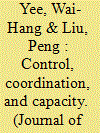

|
|
|
|
|
| Summary/Abstract |
Has the establishment of the China Food and Drug Administration in 2013 and the substantial revision of the Food Safety Law in 2015 addressed earlier implementation deficits in China’s food safety policy? Through a comprehensive literature review and series of in-depth interviews with local regulatory officials in Beijing, this study observed improvements in the frontline regulatory system regarding its adherence to regulations, corruption prevention, and citizen responsiveness. However, it also found that the system’s professional capacities were found vastly insufficient for its expanded regulatory scope. Also, frequent abuses of the citizen-complaint system added significantly to the already heavy workload. While better agency collaboration was reported at the subdistrict/township level, coordination with other related functional ministries and geographical regions remained inadequate. The findings provide a needed guide for future reforms.
|
|
|
|
|
|
|
|
|
|
|
|
|
|
|
|
| 9 |
ID:
081377
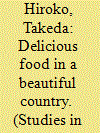

|
|
|
|
|
| Publication |
2008.
|
| Summary/Abstract |
The article discusses the recent development of banal forms of nationalism in contemporary Japan by examining a multitude of discourses on food produced by the national government as well as civil organisations working for food safety. Despite the intrinsically hybrid nature marked by the historical trajectory of Japanese food culture, these discourses tend to emphasise and propagate the Japanese element and, in so doing, firmly locate Japanese food as the core of 'Japaneseness'. In this sense, contemporary food discourse in Japan functions as a powerful biopolitical device by propagating the notion of 'delicious food in a beautiful country' on which Japanese people are expected to organise their everyday lives
|
|
|
|
|
|
|
|
|
|
|
|
|
|
|
|
| 10 |
ID:
182789
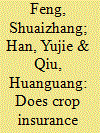

|
|
|
|
|
| Summary/Abstract |
We test how crop insurance participation affects the intensity of pesticide use in China using data on staple crop production from eight provinces. Our preferred specification instruments farmers' decisions of participation in insurance by village-level intensities of promotional activities and controls for province fixed effects. We find crop insurance participation significantly reduces pesticide use intensity. The reduction effect is greater for smaller plots, older farmers, and farmers who are more risk averse.
|
|
|
|
|
|
|
|
|
|
|
|
|
|
|
|
| 11 |
ID:
121209
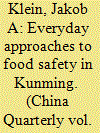

|
|
|
|
|
| Publication |
2013.
|
| Summary/Abstract |
The article explores how people in Kunming have interpreted and acted upon food-related environmental health threats, particularly within the contexts of everyday food shopping. It is argued that an increasingly intensified, delocalized food supply system and a state-led emphasis on individual responsibility and choice have produced growing uncertainties about food. However, the article takes issue with the claim that new forms of risk and institutional changes have produced "individualized" responses, arguing that many of the practices Kunmingers have developed to handle food-related risks and their understandings of what constitutes "safe" food have been developed within the frameworks of family ties and regional cuisine. Further, shoppers and purveyors of food have forged new ties of trust and re-emphasized connections between people, food and place. Nevertheless, concerns about the food supply are a source of discontent which is feeding into wider ambivalences towards modernization. This is particularly acute among the economically disadvantaged.
|
|
|
|
|
|
|
|
|
|
|
|
|
|
|
|
| 12 |
ID:
194282


|
|
|
|
|
| Summary/Abstract |
Why do policy experimentation regimes breakdown? And, if there are recognizable patterns of experimental failure, what might explain the variation? Focusing on aviation, finance and food safety, this article considers why a policy style that has been credited with China's successes in the past is failing to address governance challenges in these sectors at present. The article moves beyond discussions of policy mis-implementation by reframing experimental failure as a case of policy maladaptation under conditions of complexity and ambiguity. Maladaptation describes how approaches used in previous periods to foster adaptation can inadvertently make a system less resilient in the future. The analysis shows how the degree of consolidation of previously successful experimental regimes lends itself to certain types of maladaptation in the present: consolidated regimes are unable to generate policy alternatives (aviation), moderately consolidated regimes are maladapted for selection (finance), and unconsolidated regimes impede niche creation (food safety).
|
|
|
|
|
|
|
|
|
|
|
|
|
|
|
|
| 13 |
ID:
147616


|
|
|
|
|
| Summary/Abstract |
This article quantifies the impact of H7N9 bird flu on chicken demand and consumer willingness to pay (WTP) in China. We measure risk perception, fear and trust against actual reduction in consumption and stated change in WTP for safe chicken between 2012 and 2013. Through a survey conducted in each year on the same Chinese urban consumers, we found that the consumption of chicken never increased after the emergence of H7N9 in 2013, and WTP for safe chicken did not necessarily increase relative to generic risks associated with consuming chicken in 2012. Factors such as the fear of H7N9's spreading, the impact of distrust (especially the distrust in government) enhanced the deviation of consumption and WTP; and the sheer mentioning of H7N9 is more important and negative than whether it was associated with a risk-perception reducing or risk-perception elevating message given to consumers.
|
|
|
|
|
|
|
|
|
|
|
|
|
|
|
|
| 14 |
ID:
154559
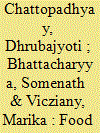

|
|
|
|
|
| Summary/Abstract |
This multi-disciplinary paper brings together two bodies of evidence that, to our knowledge, have not before been combined: literature about the efficient functioning of the East Kolkata Wetlands in the production of fish is juxtaposed against scientific research that documents the heavy metal pollution of those Wetlands caused by industries such as tanneries. Our primary question is whether it is safe to eat the fish (and other produce) of the Wetlands; a related issue is to assess the strengths and limitations of traditional knowledge. In discussing what the farmers know and what the scientists know, we have placed our work in the context of a framework developed by Richards in 1979. Our conclusions suggest that the expertise of the farmers and the expertise of the scientists can be brought together.
|
|
|
|
|
|
|
|
|
|
|
|
|
|
|
|
| 15 |
ID:
114561
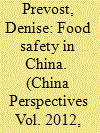

|
|
|
|
|
| Publication |
2012.
|
| Summary/Abstract |
The interaction between trade and health objectives has assumed critical importance for China since its accession to the World Trade Organization (WTO). The wish to improve its access to foreign markets has had a visible impact on China's food safety policy, providing significant impetus for far-reaching reforms. The WTO Agreement on Sanitary and Phytosanitary Measures (SPS Agreement), to which China is now bound as a WTO Member, sets out a "best practices" regulatory model with which national food safety regulation must comply. The disciplines it entails on regulatory autonomy in the area of food safety may present considerable challenges for China but have the potential to promote rationality in such regulation and to prevent food safety regulations that are based on unfounded fears or are a response to protectionist pressures from the domestic food industry. Faced with the possibility of challenges by other WTO Members to its food safety measures on the grounds of non-compliance with WTO rules, China has a strong incentive to improve conformity with this regulatory model, bringing benefits not only to exporters but most importantly to its citizens.
|
|
|
|
|
|
|
|
|
|
|
|
|
|
|
|
| 16 |
ID:
162348
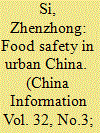

|
|
|
|
|
| Summary/Abstract |
Food safety has become an increasingly pressing sociopolitical issue in China due to the outbreak of food safety scandals since the 2000s. Existing studies have highlighted the socio-economic context of this issue, its drivers and implications. Yet, few studies have examined the perceptions of food safety conditions and strategies undertaken by consumers in their daily lives to cope with the challenge. Based on a city-wide survey of 1210 households and 36 interviews in Nanjing, China, this research adopts an ‘everyday’ perspective of analysis to investigate Nanjing residents’ perceptions of, and strategies to cope with, the food safety challenge. Perceptions include the severity of the food safety problem, the least safe foods, as well as causes and responsibilities. Coping strategies include various approaches to food access and food preparation. This article also compares the validity of potential sources of trust in food. On the one hand, the study demonstrates how the structural changes in China’s food system (i.e. chemical intensive food production and elongated food supply chains) constitute the major problems and causes of food safety issues. On the other hand, it reveals the considerable latitude within which Nanjing residents proactively exercise their agency when facing food safety challenges.
|
|
|
|
|
|
|
|
|
|
|
|
|
|
|
|
| 17 |
ID:
162349
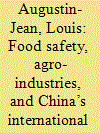

|
|
|
|
|
| Summary/Abstract |
Economic sociology views markets as organizations characterized by power relations. In this framework, competition is not only for price or quality, but also for market structures, including norms and standards. Food standards, therefore, are not only public goods or tools to protect domestic markets, but they also aim to redesign the rules of the market and provide a competitive advantage to firms and national industries: they are part of the politicization of science. This article argues that China is participating in this form of competition. Since its WTO membership, it has gradually learnt the rules of globalization and has implemented many global standards to benefit from international trade. In recent years, however, it has assumed a more proactive role in reframing international standards of agro-food markets in general and food safety in particular, despite existing problems in its domestic food markets. Three case studies – milk imports; the diplomatic and trade competition for the implementation of a ractopamine (an additive in pig and cattle feed) standard; and the current negotiations for new international standards for cotton – show how China is using different strategies and methods to redesign the shape of international trade.
|
|
|
|
|
|
|
|
|
|
|
|
|
|
|
|
| 18 |
ID:
096123
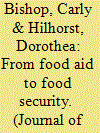

|
|
|
| 19 |
ID:
161807
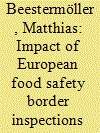

|
|
|
|
|
| Summary/Abstract |
The cost of complying with a sanitary standard is certain. However, such measure introduces uncertainty for exporters in relation to border rejections. Shipments may fail to pass inspections and may be refused entry into the importing country. This risk is shaped by variance in the quality of the exported product, and the stringency of the border controls. We examine how the risk of rejection at European borders on safety grounds is affecting Chinese agri-food exporters. We combine information from the European Rapid Alert System for Food and Feed with Chinese firm-level export data by product, destination and year for the period 2000–2011. Information externalities and reputation effects are important. Border rejections amplify the turnover among firms at the extensive margin of trade. This risk is curbing small exporters and resulting in a concentration of Chinese exports among big exporters.
|
|
|
|
|
|
|
|
|
|
|
|
|
|
|
|
| 20 |
ID:
140129
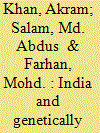

|
|
|
|
|
| Summary/Abstract |
Given the high level of poverty, malnutrition and hunger and the low level of agricultural productivity in India, agricultural biotechnology has great potential. To feed a billion-plus population by relying on conventional methods of cultivation is next to impossible. India is rich in bio-resources and biotechnology offers opportunities for converting biological wealth into economic wealth, thereby creating new employment opportunities on an environmentally and socially sustainable basis. Biotech crops have been cultivated globally for the past two decades with no negative impact on human beings, animals and the environment. The success of Bt cotton in India in the 2000s has set an excellent example of how genetically modified (GM) technology can turn around India’s agriculture sector. Safety of GM crops being a serious issue, it is important to ensure that India has adequate regulatory instruments and infrastructures. At the same time, India has more serious food safety risks to worry about including unsanitary food processing, as well as food security concerns pertaining to the availability and affordability of food. Priority must go to more clearly demonstrated safety risks instead of hypothetical risks.
|
|
|
|
|
|
|
|
|
|
|
|
|
|
|
|
|
|
|
|
|